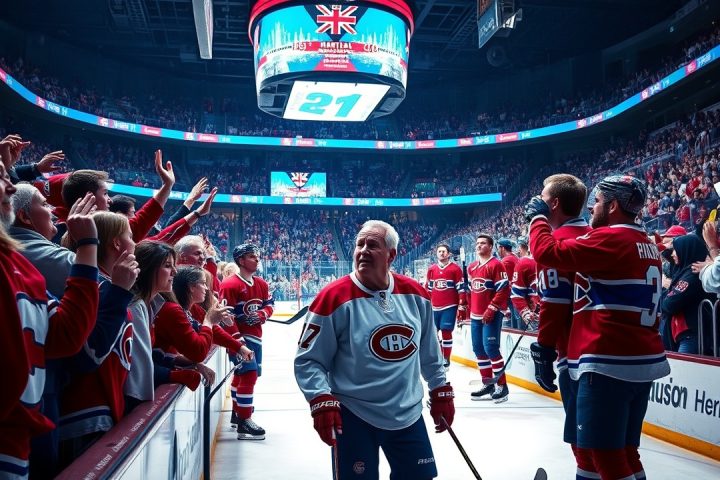The NHL Playoff Format Change of 1986
In 1986, the NHL introduced a seemingly innocuous yet pivotal change to its playoff format, opting to extend the first round from a best-of-five to a full best-of-seven series. This adjustment, an effort to create a more cohesive playoff structure, went largely unchallenged by fans and analysts alike at the time. It was deemed a logical step forward that promised more hockey and additional revenue. However, as history has unfolded, one can’t help but wonder how the league’s trajectory could have differed had this change never been implemented.
Exploring Alternate Scenarios
Fast forward nearly four decades, and the ramifications of that single decision are significant. One fan posed a question worth exploring: How would NHL history be rewritten if that first round had remained a best-of-five? Walking through alternate scenarios can uncover a myriad of outcomes that could have drastically reshaped the league’s landscape.
Key Matchups and Their Implications
For instance, in a recent first-round matchup, the Washington Capitals showcased their dominance by eliminating the New York Islanders in just four games. This loss was particularly disappointing for the Islanders, who hoped to highlight their young star, Pat LaFontaine. Instead, LaFontaine was unable to find the back of the net throughout the series, leaving fans yearning for a more memorable playoff moment.
Meanwhile, if the playoff format had remained shorter, it’s conceivable that the Capitals’ success might have been snuffed out early, providing the Islanders a second chance that could have propelled them forward in the tournament.
In another significant encounter, the Edmonton Oilers faced their former captain, Wayne Gretzky, now with the Los Angeles Kings. Many anticipated that Gretzky would lead the Kings to an upset; however, the Oilers proved formidable once more, sweeping the Kings in four games and leaving critics to question the value of the trade that saw Gretzky leave Edmonton.
The Winnipeg Jets finally broke a long-standing jinx against the Oilers, winning their first playoff series against them in five tries. Dave Ellett’s double-overtime power-play goal in Game 4 sent Jets fans into ecstasy, marking a turning point in the franchise’s history. Had the format favored a shorter series, this historic moment might have never come to pass, stunting the momentum of the Jets and potentially leading to extended struggles.
That year also witnessed a shocking upset involving the New Jersey Devils, who knocked out a heavily favored Pittsburgh Penguins team that had seemingly stacked its roster with Hall of Fame talent around superstar Mario Lemieux. Even after acquiring players like Ron Francis and Jaromir Jagr, the Penguins could not advance beyond the first round. If the matches had been a best-of-five, perhaps Pittsburgh would have secured the few wins needed for a deeper run, ultimately shaping Lemieux’s legacy differently.
Contrasting stories unfolded with the Vancouver Canucks, who have been unable to surpass the first round since their Cinderella run to the Cup final in 1982. This year’s early exit to the Calgary Flames marks another year of dashed hopes for Canucks fans, who reminisce about that magical past rather than witness their current struggles.
The Chicago Blackhawks, too, faced an early playoff departure in a familiar and disappointing fashion. With many teams contending to win their respective rounds, each victory and loss underscore the continued importance of playoff structure in determining outcomes and the long-term health of franchises.
Conclusion
Thus, as the first round culminates, nostalgia for moments of triumph and despair permeates the air, complemented by the uncertainty of what could have been. The league has changed dramatically since 1986, but the playoff format’s evolution will forever influence the narratives woven through NHL history—reminding us that even minor adjustments can have monumental impacts.




